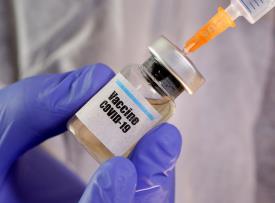 In the midst of pessimistic data on the increasing incidence rate of COVID-19 in the U.S., Latin America and the Middle East, some good news on vaccine development was released that should buoy optimism. Pfizer in partnership with BioNTech SE announced that two candidate vaccines will receive “Fast Track” designation from the FDA. The Pfizer- BioNTech consortium is competing with Moderna Inc. working with AstraZeneca PLC.
In the midst of pessimistic data on the increasing incidence rate of COVID-19 in the U.S., Latin America and the Middle East, some good news on vaccine development was released that should buoy optimism. Pfizer in partnership with BioNTech SE announced that two candidate vaccines will receive “Fast Track” designation from the FDA. The Pfizer- BioNTech consortium is competing with Moderna Inc. working with AstraZeneca PLC.
 The BioNTech and Moderna alternative vaccines have delivered promising preliminary results in human trials by stimulating an antibody response. More extensive trials will be required to confirm that antibody level actually correlates with protection and that there are no undesirable side effects and that long-term protection is stimulated.
The BioNTech and Moderna alternative vaccines have delivered promising preliminary results in human trials by stimulating an antibody response. More extensive trials will be required to confirm that antibody level actually correlates with protection and that there are no undesirable side effects and that long-term protection is stimulated.
Although there is a dire need for an effective, but safe vaccine, regulatory agencies worldwide are aware of both political and economic pressure to grant approval, but this imperative is tempered by their collective knowledge of past vaccine failures. At best an ineffective vaccine will cause no harm but will be a costly exercise and will require resources to administer. Despite raising false hopes an ineffective vaccine may prejudice the adoption of a subsequent product. It is however possible that deleterious side effects of a successful vaccine may only be determined following large-scale administration. Previously examples of difficulties encountered include an inactivated Cutter vaccine against poliomyelitis in the 1955, RSV vaccines (1967), swine flu vaccine in the U.S. (1976) initial administration of rotavirus vaccines in developing nations in 2012, and dengue vaccine in 2017. Problems were only encountered after field deployment, leading to modification in the way vaccines were prepared, total withdrawal or replacement with an improved product.